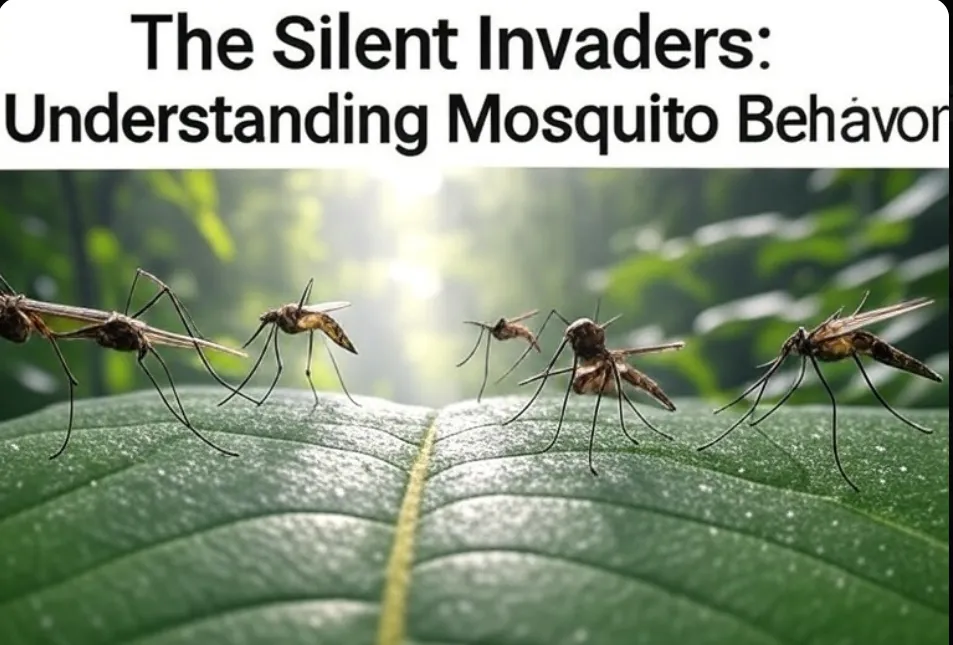As I sit here, swatting away at an imaginary mosquito, I find myself diving headfirst into the age-old question that has been plaguing those of us in the mosquito-endemic regions of the world: should we eradicate mosquitoes entirely?
How did I arrive at this post? Thanks to this X thread by @ReviewsPossum, which ignited a fiery debate on the platform. I’m here to unpack it all - scientifically, ethically, and with a dash of intrigue.
The Case for Mosquito Genocide
Let’s start with the argument that’s got everyone cheering: mosquito eradication could save lives. According to the World Health Organization’s latest vector-borne disease report, mosquitoes are responsible for a staggering 780,000 deaths annually, more than any other animal, outpacing even humans. Malaria, dengue, and Zika are just a few of the culprits, spreading havoc as climates warm and mosquito habitats expand. The thread’s claim that mosquitoes aren’t the primary food source of any species holds water. Ecological studies, like those on Cameron Webb’s mosquito research blog, show bats and dragonflies prefer larger insects like moths over these tiny pests. Even their pollination role, where males sip nectar, is negligible compared to bees and butterflies. The math seems simple: wipe them out, and humanity wins.
The thread goes further, suggesting nature would adapt. With no species solely dependent on mosquitoes, predators like fish or spiders could shift to other prey. This aligns with trials of genetically modified mosquitoes in Brazil, where gene drives aim to suppress populations without full extinction, offering a controlled health boost. The visual of 780,000 lives saved versus a mere 10 shark-related deaths (per 2016 global stats) is compelling. Why not swing the sword?
The Counterargument: Nature’s Delicate Balance
But hold on. My inner skeptic raises a flag. What if we’re missing a piece of the puzzle? The systematic review on Bacillus thuringiensis israelensis (Bti), a larvicide, hints at potential ripple effects. Studies, such as those from the U.S. Environmental Protection Agency, suggest mosquito larvae feed young fish in aquatic ecosystems, and while not a primary food source, their removal might force predators to adapt, possibly overtaxing other prey or disrupting microbial communities in wetlands. A Reddit thread from r/askscience (2017) echoes this concern, warning that unpredictable ecological shifts could follow, like frogs overgrazing alternative food sources.
Then there’s the ethical quandary. Do we have the right to play god, erasing a species because it inconveniences us? Even if their ecological role is minor, total extinction might open a Pandora’s box, perhaps a rise in other pests or diseases we haven’t modeled yet. The gene drive technology, while promising, carries risks of resistant super-mosquitoes or unintended cross-breeding, as noted in analyses from the National Institutes of Health. Nature abhors a vacuum, and I can’t help but wonder if we’re too hasty to pull the trigger.

Debunking the Myths
Misinformation swarms around this debate, and it’s time to squash it. The myth that bats eat thousands of mosquitoes nightly? Busted. Recent observations show moths dominate their diet, with mosquitoes making up less than 1%. Another fallacy: crane flies, dubbed skeeter eaters, don’t touch mosquitoes. Most adults lack mouths and live just long enough to reproduce. Even the idea that mosquitoes are vital pollinators gets overblown; their contribution is a drop in the bucket compared to established pollinators. And that humorous X post calling them “demons from hell” with eternal resilience? Pure fiction! Science, not mythology, should guide us.
The Uncharted Territory
Digging deeper, I find tantalizing unknowns. The thread’s claim that no predator relies solely on mosquitoes is solid, but what about subtle roles like nutrient cycling in larval habitats? Research in Ghana’s Volta Region, part of Target Malaria’s efforts, suggests Anopheles gambiae larvae aren’t key food sources, yet the data isn’t conclusive across all species. Could their absence shift aquatic ecosystems in ways we can’t predict? The Bti review hints at non-target impacts, urging caution.
Meanwhile, the climate crisis amplifies the stakes. Warmer summers, as noted in NPR’s 2024 health news, are expanding mosquito ranges, driving up disease rates. This urgency pushes for action, but the ecological gamble keeps me cautious. Gene drive trials show promise, yet their long-term safety remains under scrutiny. Lab successes don’t always translate to the wild.
My Verdict: A Call for More Research
As I sit here, torn between saving lives and respecting nature’s complexity, I lean toward a middle path. Eradication offers a clear health win, but the risks of unintended consequences demand more study. Personally, I will be more than happy not to be down with bouts of malaria every 3 to 4 months. The data debunks major myths and supports a minor ecological role for mosquitoes, yet the unknowns, such as subtle ecosystem shifts and ethical dilemmas, counsel patience. I'd prefer we invest in targeted suppression, like gene drives, while monitoring impacts rigorously. Only then can we swat this debate with confidence.
What do you think? Should we declare war on mosquitoes or let them buzz on? Drop your thoughts below. I’m all ears!